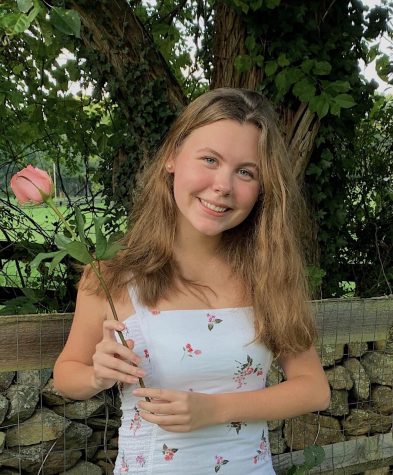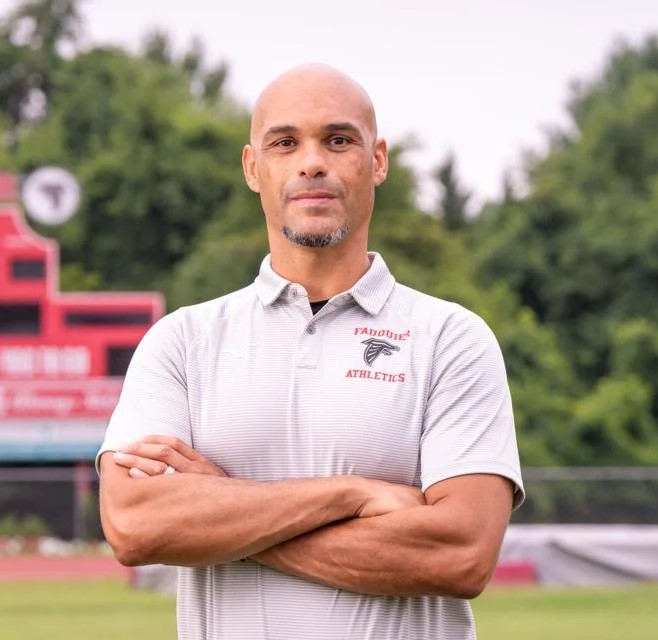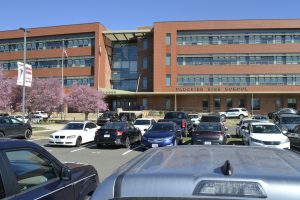Controversy Surrounding Deep Equity
September 27, 2021
Beginning in the summer of 2018 and concluding in January of 2020, the FCPS1 division offered professional development called “Deep Equity.” According to FCPS1 Public Information Officer Tara Helkowski, “between August of 2018 and January of 2020, we had approximately 56 staff from across the division receive deep equity training with the goal of implementing instructional equity teams in our schools.”
Teachers were given the option to learn about implementing instructional equity teams in schools. “The goal of these teams is simple, to support teachers with strategies and activities to deal with the many tough issues that arise in the classrooms around race, gender, socioeconomics, etc. to build their expertise in not letting these issues be barriers for their colleagues and students,” said Helkowski.
Throughout the course of its existence, “Deep Equity” has raised concern from the community. “Deep Equity Process is not educational in the normal sense of the word. It’s just more social engineering,” said contributor to Fauquier Now John Green. Green also raised concerns about “the social engineering going on in our schools is destroying our schools and our nation. We must change course now or our great experiment will fail. If you want to see what that failure looks like, read “1984” or “Brave New World,” said Green.
On September 9, FCPS1 Superintendent David Jeck submitted an editorial in response to Green’s piece. “There are many kids who continue to fall behind and it is our job to figure out how to reach them. Denying that it is a real problem is intellectual dishonesty,” said Jeck.
Jeck defended the “Deep Equity” training saying that, “We (myself included) have difficulty identifying with kids who are completely different from us. These are often impoverished students, disabled students, students who come to school hungry, who regularly witness violence in their homes, who have no hope of going to college because they feel powerless to pay for it, and who often live with substance abuse and the aftermath. Does the author believe that all teachers are somehow intrinsically empowered to understand and help these kids? Many do not, which is one of the reasons many chose to participate in the staff development we provided.”
English teacher Lyn Good, who attended these training programs, finds that applying equity into lessons is a good thing.“I may find I have a student that goes to school full-time, works till 11 p.m., babysits their siblings and comes home thoroughly exhausted and can’t do all the homework they’ve been assigned. This would be one of those situations where I would, for example, tell them, ‘You know, instead of writing a 10 page paper, write me a 5 page paper and show me you understand the material,” said Good.
Next school year “it will be a new section of our [teacher] evaluation that we will be critiqued on. State is eventual, but next year it is definitive for Fauquier. The thing that I keep telling teachers is 90 percent of us are doing this already. It’s not something where we’re trying to force something that’s going to go away in two years,” said Good.
FCPS1 Associate Superintendent Major Warner advocates for equitable teaching. “We should think of equity as a process that requires thoughtful and bold conversations around what prevents students from accessing learning, services, and activities. Sometimes the conversation moves into a deeper conversation where we recognize that some of these barriers may be shaped or informed by race and poverty,” said Warner in an email. “We have an obligation to do something about the barriers to learning, and it’s important to understand [equity] if we are going to be better for our students.”







